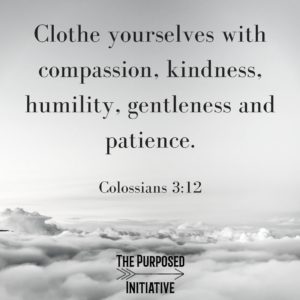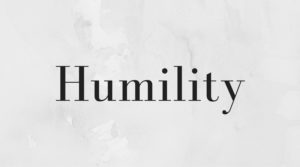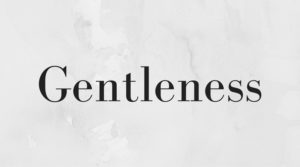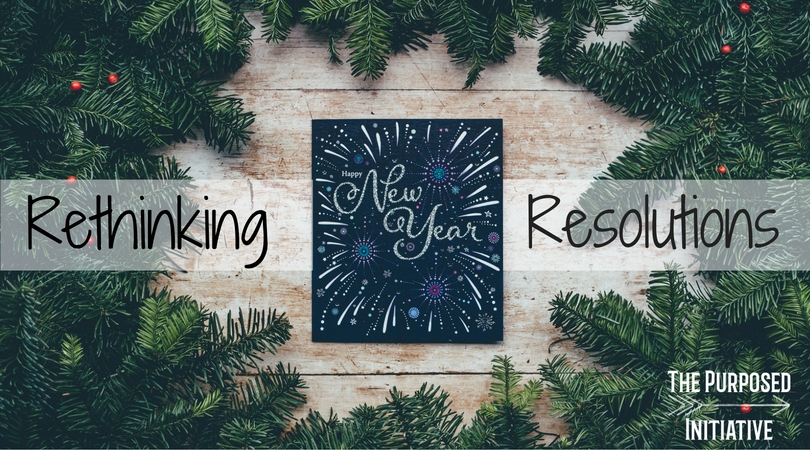Last year we wrote about the growing conviction we felt about being more committed to developing our character, rather than getting caught up in goal attainment. For our first post of 2017 whilst everyone is busy with New Year’s Resolutions, we have decided to return to this theme, and discuss some of the areas of character development we will be focusing on in our own lives this year.
 We all have hard parts of our soul. The soft, vulnerable and tender parts that have been damaged and bruises become hardened as a protective shell grows and spreads, attempting to cover over the pain. We fiercely guard these bruised and damaged parts, protecting them from future damage by identifying and labelling who it is that caused us harm. We simplify and generalise, ‘all women are liars’, ‘all blacks are violent’, ‘all politicians are corrupt’… We allow ignorance and fear to intertwine and give birth to hate. The fear and hatred towards the ‘other’ become so ingrained into our psyche that we rarely stop and ask: Who is it that my heart is hard towards? Is the refugee who comes here illegally who you feel gets a handout and a leg up from your taxes? Is it the flamboyant LBGQTI who makes you uncomfortable by their overt display of divergent sexuality? Is it the person on a disability pension who seems to just spend their payment of smokes and grog? Is it the white upper-class businessman who exudes arrogance and contempt for all those who weren’t blessed into the privilege that he was? The media feeds this fear and anger towards the other; the pensioner is angry at the taxpayer who is angry at the pensioner; the conservative is angry at the progressive who is angry at the conservative; the Atheist is angry at the Christian who is angry at the Muslim who is angry at the Atheist and on and on and on it goes, ignorance and a lack of compassion dividing our community up into segments of hate and fear.
We all have hard parts of our soul. The soft, vulnerable and tender parts that have been damaged and bruises become hardened as a protective shell grows and spreads, attempting to cover over the pain. We fiercely guard these bruised and damaged parts, protecting them from future damage by identifying and labelling who it is that caused us harm. We simplify and generalise, ‘all women are liars’, ‘all blacks are violent’, ‘all politicians are corrupt’… We allow ignorance and fear to intertwine and give birth to hate. The fear and hatred towards the ‘other’ become so ingrained into our psyche that we rarely stop and ask: Who is it that my heart is hard towards? Is the refugee who comes here illegally who you feel gets a handout and a leg up from your taxes? Is it the flamboyant LBGQTI who makes you uncomfortable by their overt display of divergent sexuality? Is it the person on a disability pension who seems to just spend their payment of smokes and grog? Is it the white upper-class businessman who exudes arrogance and contempt for all those who weren’t blessed into the privilege that he was? The media feeds this fear and anger towards the other; the pensioner is angry at the taxpayer who is angry at the pensioner; the conservative is angry at the progressive who is angry at the conservative; the Atheist is angry at the Christian who is angry at the Muslim who is angry at the Atheist and on and on and on it goes, ignorance and a lack of compassion dividing our community up into segments of hate and fear.
Paul, the author of Colossians, lived in a time where the issues might have been different, but the divides still existed. Prior to his conversion Paul was a major antagonist of the early Christians, leading the charge to have them arrested and killed. Years later, he writes to the very people he had once feared and loathed, and now calls his brothers and sisters. Throughout his post-conversion ministry, Paul undertook the hard work of learning and exercising compassion, peace and unity. Let us take a look at an extract from his letter to the Colossians, and see what wisdom we can glean from it.
 Cultivating compassion helps protect our souls from developing those hard parts when we are hurt or confronted by difference. Compassion looks past a person’s race, gender, capacity, sexuality and a myriad of other factors and sees each person as they are, a human being deserving of love. Compassion is one of those traits that we like of idea of, but in reality it can be hard to put it into practice, particularly with those who we don’t believe deserve it. Yet compassion is the foundation for the other behaviours we’re talking about. Without compassion we are unlikely to be kind. Compassion helps us to be humble because it gives us the ability to put others above ourselves. Compassion leads us to gentleness and gives us patience. Breaking through hate and showing love starts with compassion.
Cultivating compassion helps protect our souls from developing those hard parts when we are hurt or confronted by difference. Compassion looks past a person’s race, gender, capacity, sexuality and a myriad of other factors and sees each person as they are, a human being deserving of love. Compassion is one of those traits that we like of idea of, but in reality it can be hard to put it into practice, particularly with those who we don’t believe deserve it. Yet compassion is the foundation for the other behaviours we’re talking about. Without compassion we are unlikely to be kind. Compassion helps us to be humble because it gives us the ability to put others above ourselves. Compassion leads us to gentleness and gives us patience. Breaking through hate and showing love starts with compassion.
 Kindness is built upon a foundation of compassion. When we step into the world of someone who is different to us, and allow compassion to work in our hearts, the natural outcome is kindness. We feel compelled to do something, to somehow be able to help, to give, and ease the burden carried by our fellow human. Kindness doesn’t have to be big or flashy; sometimes the most meaningful acts are the simplest. Some examples might be opening a door for someone, offering to help carry things when you see a person struggling, preparing a meal or helping with some chores, or any other act which helps meet a need. These small acts of kindness which can feel like no effort at all often make a huge difference to someone else’s day by showing that someone cares and that they are valued.
Kindness is built upon a foundation of compassion. When we step into the world of someone who is different to us, and allow compassion to work in our hearts, the natural outcome is kindness. We feel compelled to do something, to somehow be able to help, to give, and ease the burden carried by our fellow human. Kindness doesn’t have to be big or flashy; sometimes the most meaningful acts are the simplest. Some examples might be opening a door for someone, offering to help carry things when you see a person struggling, preparing a meal or helping with some chores, or any other act which helps meet a need. These small acts of kindness which can feel like no effort at all often make a huge difference to someone else’s day by showing that someone cares and that they are valued.
 For compassion and kindness to flourish in our soul, we need to practice humility. Humility is such a foreign concept in our culture today that I think we need to go back to Jesus and the bible to really know what it is to be humble. The more we read about the King who elected to be born into poverty, the leader who washed his disciples feet, and the saviour who died for those who hated him… the more we realise we have no right to demand special treatment. He gave us the clearest example of how to lead and to make a difference in the lives of others. Humility is incredibly counter-cultural society in a society that is obsessed with what I can get and what I deserve; but when we are willing to be humble and put others first we will see the power that humility has.
For compassion and kindness to flourish in our soul, we need to practice humility. Humility is such a foreign concept in our culture today that I think we need to go back to Jesus and the bible to really know what it is to be humble. The more we read about the King who elected to be born into poverty, the leader who washed his disciples feet, and the saviour who died for those who hated him… the more we realise we have no right to demand special treatment. He gave us the clearest example of how to lead and to make a difference in the lives of others. Humility is incredibly counter-cultural society in a society that is obsessed with what I can get and what I deserve; but when we are willing to be humble and put others first we will see the power that humility has.
 Gentleness is often seen as a behaviour for those who are weak or unassertive, yet in a society characterised by hustle and bustle, making the choice and effort to be gentle takes real strength. We live in a culture of looking out for number one and making sure we get our own needs met, which can mean that gentleness gets pushed to one side for fear of missing out. Yet when we make the time and space to be gentle we allow the opportunity for real connection, and this connection is what gives us the ability to have a positive impact into the lives of others. Gentleness resists the temptation to push through for ourselves, and chooses instead to be present for others.
Gentleness is often seen as a behaviour for those who are weak or unassertive, yet in a society characterised by hustle and bustle, making the choice and effort to be gentle takes real strength. We live in a culture of looking out for number one and making sure we get our own needs met, which can mean that gentleness gets pushed to one side for fear of missing out. Yet when we make the time and space to be gentle we allow the opportunity for real connection, and this connection is what gives us the ability to have a positive impact into the lives of others. Gentleness resists the temptation to push through for ourselves, and chooses instead to be present for others.
 Similar to gentleness and humility, patience is a counter-cultural concept. In a society which is always trying to do things quicker, patience calls on us to take time. Patience is what gives us the ability to make time for other people so we can truly get to know them. Patience helps us to listen so we can understand, not just respond. Patience empowers us to look for ways to make meaningful change, not just try to find a quick fix. Patience helps us to understand that change and progress can take time, and that healing can as well. Patience helps us stick through tough times and out the other side.
Similar to gentleness and humility, patience is a counter-cultural concept. In a society which is always trying to do things quicker, patience calls on us to take time. Patience is what gives us the ability to make time for other people so we can truly get to know them. Patience helps us to listen so we can understand, not just respond. Patience empowers us to look for ways to make meaningful change, not just try to find a quick fix. Patience helps us to understand that change and progress can take time, and that healing can as well. Patience helps us stick through tough times and out the other side.
Here is our challenge to you, and to ourselves: This year let’s make the resolution to try on compassion, kindness, humility, gentleness and patience. To not buy into the hateful media rhetoric of the dole bludger who rips of the government, or the Muslim immigrant who must be a terrorist, or the intolerant Christian hates everyone with a non-heteronormative lifestyle. Instead, when you find that hard spot in your soul, when you feel the anger and fear and indignation bubble up inside you, stop. Seek instead to try and understand the perspective of those who you find so hard to love. Read a book or have coffee with someone who is different to you. See the world from their perspective. You may not agree with everything they say or believe; that’s OK. Compassion, kindness, humility, gentleness and patience aren’t about ignoring or eliminating difference; they’re about being able to say you are different to me, but you still matter, and you have worth, and you deserve to be treated with love and respect.


Recent Comments